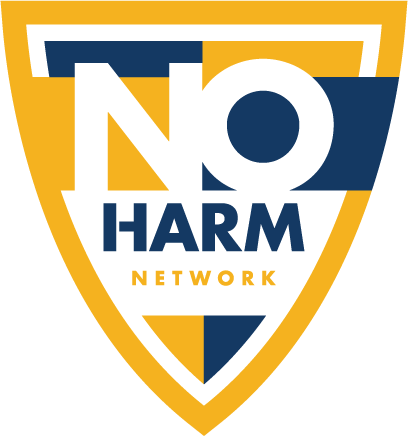Training In A World of Trauma and Trafficking
/Written By: Susan McKelvy, MS, LPC-S, NFNL National Conference Director
I’ve spent most of my career working in non-profit and educational settings, specifically focused on working with women, children, and families that have experienced trauma. What I’ve learned over this time is that trauma manifests many ways, but there are physiological changes that take place after trauma that can lead to sadness, agitation, dissociation, anxiety, behavioral changes, and even PTSD. Working with members at New Friends New Life has again shown me that the long-term effects of trauma are deep and long-lasting, often starting from a young age and continually compounding over time.
How Many People Does Trauma Actually Affect?
Statistics tells us that over 70% of adults in the U.S. will experience trauma. This can be from one-time events such as a car accident, or it can come from complex trauma that takes place over longer periods of time such as abusive relationships or being trafficked. Of this 70%, around 8% of women and 4% of men will develop PTSD (Post Traumatic Stress Disorder). This is a more severe form of trauma that causes nightmares, flashbacks, and periods of re-experiencing the traumatic events. These statistics are for the general population. When looking at trauma in trafficking groups, 39% of adults and 27% of children were diagnosed with PTSD. That’s quite a jump!
How Can Licensed Professionals Help?
As licensed professionals, we are required to receive a set number of hours of training each year. This helps show that the license holder is always staying on top of cutting-edge information and providing the best care to their clients or patients. And while this sounds like an amazing way to ensure that everyone’s provider, therapist, attorney, etc. is always informed on best practice and dedicated to providing well-informed care, there are few required topics that must be covered for most licenses.
Some of the topics that are mandatory for many professions now are ethics, rules and regulations of the license held, and human trafficking. This leaves a lot of room for license holders to explore their interests related to their work, which is wonderful! But, it also leaves room for people to find quick trainings that can be completed with minimal attention just to check a box.
One of the things that makes New Friends New Life’s approach to trauma unique and necessary is the training of its therapists and staff. Our therapists are trained in trauma-informed approaches including EMDR (Eye Movement Desensitization and Reprocessing), TF-CBT (Trauma Focused – Cognitive Behavioral Therapy), DBT (Dialectical Behavior Therapy) and others. Our staff (even those not in a direct member role) receive training on the effects of trauma and we prioritize using this information to shape all our interactions with our members.
In fact, even our use of the word “member” in place of “client” to describe those we serve is a trauma-informed approach, because “client” can be a trigger word for women in the world of trafficking.
Where Do I Find Trauma Informed Training?
If you are someone who works with people in any format, trauma informed training is a must.
This may seem obvious when you know that you are working in a field with high trauma statistics such as trafficking, domestic violence, or child abuse. But with 70% of the U.S. population having experienced trauma, you probably interact with people who have experienced trauma more often than you might think.
Thankfully, you have many options. A simple internet search can help you find more information on ways to increase your knowledge on what trauma looks like, the long-term effects, and treatment options. More specifically, New Friends New Life offers a virtual conference each year on trafficking (a training topic required for many licenses now), that includes several topics on addressing trauma. We are also beginning a local, in-person training series that will cover trauma informed care. Stay tuned for dates and details on our website.
Whatever your field, whatever your license, the most important thing to remember is that the more knowledge the world has on trauma, the better off we will all be.










